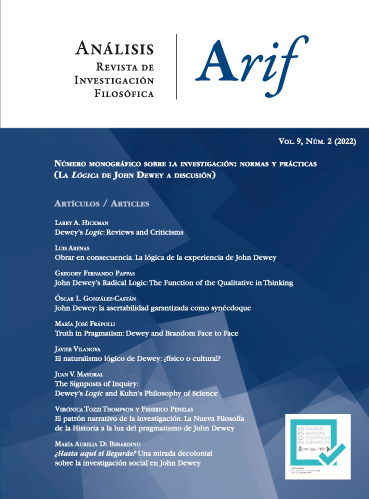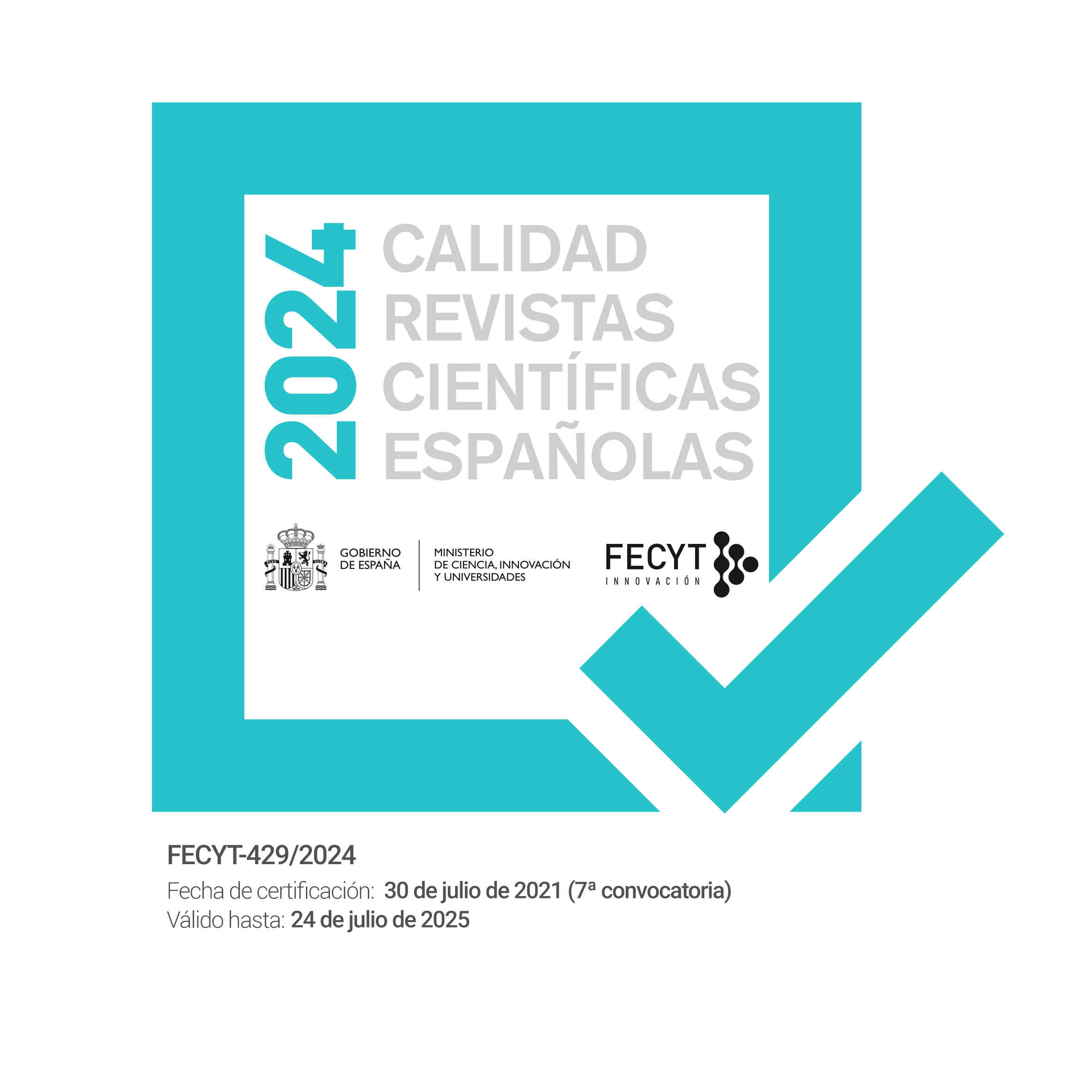John Dewey: warranted assertibility as synecdoche
DOI:
https://doi.org/10.26754/ojs_arif/arif.202227310Abstract
Dewey problematically introduces the notions of truth and knowledge into the general argument of his Logic. He maintains that the purpose of research is to produce statements that have warranted assertibility and equates, by definition, knowledge and truth with this type of statements. This strategy has to deal with problems stemming from two different fronts. The first one has to do with the line of continuity that Dewey establishes between animal behaviour, behaviour in everyday life, and scientific behaviour. If the notion of truth is not necessary to describe animal behaviour, neither will it be necessary to describe scientific research. The second one comes from the epistemological consequences that Dewey draws from the change in our scientific theories and their warranted assertions. I explore the role that error and repetition have in this area and argue that Dewey's position, while not false, constitutes a case of metonymy, i.e. of taking a part for the whole.
Display downloads
Downloads
Published
Issue
Section
License
Copyright (c) 2022 Óscar Lucas González-Castán

This work is licensed under a Creative Commons Attribution-NonCommercial-NoDerivatives 4.0 International License.
Los autores que publican en esta revista están de acuerdo con los siguientes términos: los autores conservan los derechos de autor y garantizan a la revista el derecho de ser la primera publicación del trabajo al igual que licenciado bajo una Creative Commons Reconocimiento-No Comercial-Sin Obra Derivada 4.0 (CC BY-NC-ND) que permite a otros compartir el trabajo con un reconocimiento de la autoría del trabajo y la publicación inicial en esta revista. Los autores pueden establecer por separado acuerdos adicionales para la distribución no exclusiva de la versión de la obra publicada en la revista (por ejemplo, situarlo en un repositorio institucional o publicarlo en un libro), con un reconocimiento de su publicación inicial en esta revista.
How to Cite
Accepted 2022-10-19
Published 2022-12-02






